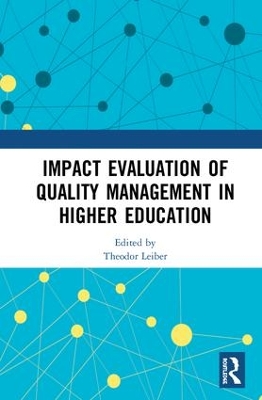This volume works towards overcoming the lack of systematic impact evaluation in higher education, particularly analyses which are not restricted to ex-post gathered data and expert assessments. Since (higher) education is more important than ever in knowledge societies, high priority should be ascribed to quality management (QM) in higher education institutions (HEIs). Consequently, impact evaluation of QM effectiveness is indispensable because it generates the knowledge required for quality (management) improvement.
The introductory chapter elucidates the motivation and objective of impact analyses of QM in HEIs and provides an overview of the volume’s other contributions. One chapter reflects on success factors and un-/intended effects of QM, while another one analyses more discoursive ways of evidence-informed guidance of QM policies which are complementary to rigorous impact studies. Five chapters investigate QM effectiveness in HEIs by ex-post and simultaneous impact evaluation in European case studies, including assessments of students, teachers, quality managers, and institutional leadership. The case studies comprise universities from Germany, Spain, Finland, and Romania. The final chapter reports a SWOT analysis of impact evaluation of QM in HEIs, which is suggested as a tool for bridging the notorious gap between the demanding methodology of impact evaluation and its proper implementation.
This book was originally published as a special issue of the European Journal of Higher Education.
- ISBN10 0367264420
- ISBN13 9780367264420
- Publish Date 14 May 2019
- Publish Status Active
- Publish Country GB
- Publisher Taylor & Francis Ltd
- Imprint Routledge
- Format Hardcover
- Pages 136
- Language English
